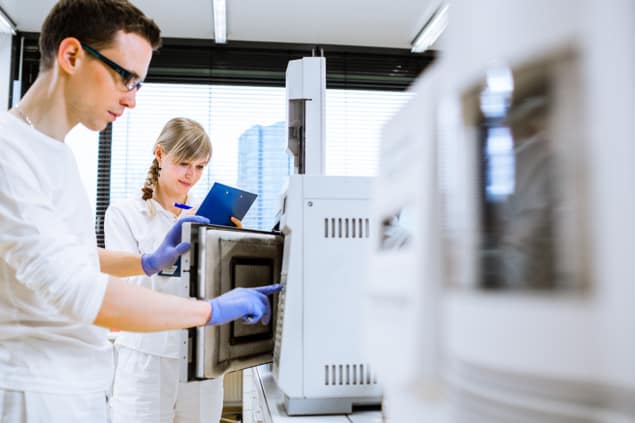
Laboratory sessions that are designed to emphasize and teach experimentation skills lead to gender imbalances among students, with men and women taking on different roles. That is according to a study by researchers in the US, which found no significant differences in role division in more traditional labs that attempt to reinforce lecture content (Phys. Rev. Phys. Educ. Res. 16 010129).
In their study, the researchers observed students enrolled in a mechanics class as part of a calculus-based physics course. Students attended the same lectures, but two different lab courses: one set up to reinforce knowledge introduced elsewhere on the course, and the other designed to teach experimentation skills. In the traditional lab sessions students were given instructions of experimental procedures and worksheets to complete. However, the experimentation lab students were expected to make decisions about the design and analysis of their experiments. The study included 143 students: 109 men, 32 women and two students who did not disclose their gender.
To assess the roles students took, the researchers observed the lab sessions at five-minute intervals, noting what each student was handling. The choice was a desktop computer, lab equipment, a personal laptop, a notebook or “other” – a broad category designed to ensure all student time was accounted for. In the inquiry-led labs men systematically handled the equipment more, while video analysis showed that women spent about twice as much time as men on laptops.
The study also revealed that students rarely discussed the roles they would assume, and there were no instances of students being explicitly allocated roles by other group members or lab instructors. The researchers suggest that the differences they saw are driven by subtle verbal and non-verbal interactions at the individual level that accumulate to create class-level patterns.
Lead author Natasha Holmes from Cornell University says that it is unclear if there are negative implications from this finding, but it needs to be explored. It could, she explains, reinforce gender stereotypes, which is concerning in a field like physics that has significant diversity issues. “If looking around the room you see that all the male students are handling the equipment what sort of message is that sending?” Holmes told Physics World. “There is a risk that there are implications down the line for students’ feelings of whether they belong.”
Holmes and her colleagues have previously highlighted the benefits of inquiry-led labs, showing that they boost student engagement. Indeed, she says there is “overwhelming evidence that traditional labs are unproductive”. The team says that this latest work does not distract from this, but shows that active steps need to be taken when redesigning lab courses to ensure gendered roles are not reinforced. In particular, inquiry-led labs, with the work structure removed, attention needs to be paid to the group dynamics.



